 Petzlover
PetzloverBoth Brug and Schnauzerdor are originated from United States. Brug may grow 16 cm / 6 inches shorter than Schnauzerdor. Brug may weigh 24 kg / 52 pounds lesser than Schnauzerdor. Both Brug and Schnauzerdor has same life span. Brug may have less litter size than Schnauzerdor. Brug requires High Maintenance. But Schnauzerdor requires Low Maintenance
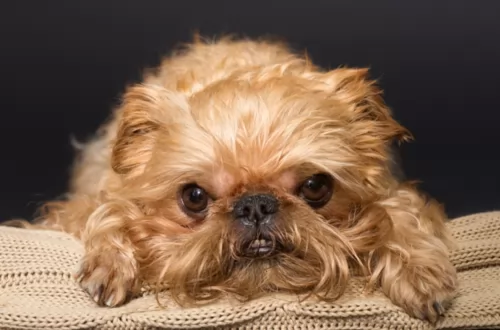 The Brug or Griffon Pug is not a purebred dog at this point in time. It is a cross between a Pug and a Brussels Griffon, currently known as a “designer dog” or a hybrid. This hybrid is really rare at this time but growing in popularity and breeders. Its exact history or original development is unknown at this time and needs to be researched as the hybrid develops into a breed, or breed clubs are formed. If you like either of the two breeds involved, you are sure to like the Brug. They are obviously not recognized by the major kennel clubs, but they are registered with a variety of hybrid/designer dog clubs. These include:
The Brug or Griffon Pug is not a purebred dog at this point in time. It is a cross between a Pug and a Brussels Griffon, currently known as a “designer dog” or a hybrid. This hybrid is really rare at this time but growing in popularity and breeders. Its exact history or original development is unknown at this time and needs to be researched as the hybrid develops into a breed, or breed clubs are formed. If you like either of the two breeds involved, you are sure to like the Brug. They are obviously not recognized by the major kennel clubs, but they are registered with a variety of hybrid/designer dog clubs. These include:
With these modern day mixed-breeds, there is no history or records of when they came into being so we assume the USA. And so it it with the Schnauzer Lab mix breed. Each of the parent dogs – the Schnauzer and the Labrador, have their own histories.
It is uncertain how the Schnauzerdor came into being. Not so long ago, puppies born from different parents were simply labeled mongrels, but today they have been specifically bred. With these dogs you are never really sure how the puppies will turn out, and even within one litter, the puppies can be different looking.
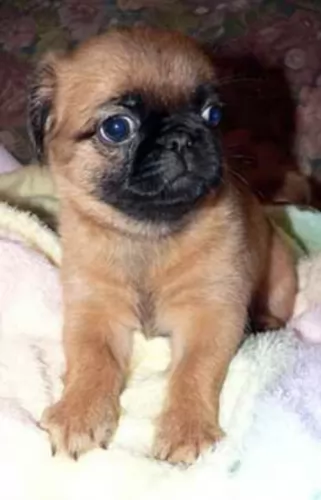 Like its two parental breeds, the Brug is a smaller sized dog – both parents are lab dogs and so is the Brug. Because they are hybrids, Brugs can be very different in appearance but most seem to have large eyes, squishy faces, black masks, fluffy hair, long black whiskers, short fluffy hair, flat ears and a fluffy tail. They could be in any of a number of colors including fawn, black, cream or apricot.
Like its two parental breeds, the Brug is a smaller sized dog – both parents are lab dogs and so is the Brug. Because they are hybrids, Brugs can be very different in appearance but most seem to have large eyes, squishy faces, black masks, fluffy hair, long black whiskers, short fluffy hair, flat ears and a fluffy tail. They could be in any of a number of colors including fawn, black, cream or apricot.
A Schnauzer Labrador or Schnauzerdor is much the same size of the Labrador if the parents were a Labrador and a standard Schnauzer.
You can expect the height to be roughly between 50 to 62cm and weight could be anything from 20 to 35kg. Everything will depend on the size of the Schnauzer really as there are 3 kinds – miniature, standard and giant.
There’ is no way of knowing what physical characteristics the Schnauzerdor will get from each parent. The coat of these dogs can be anything from smooth to wiry and they can also be in a number of different colors, from yellow to cream, grey, black, brown.
Schnauzers and Labradors are intelligent dogs so the Schnauzerdor is guaranteed to turn out smart. Make sure that your Schnauzerdor receives training and socialization. Clever dogs like this won’t battle with training and it can ensure your pet is obedient and balanced, knowing how to behave around different people and in different situations.
Schnauzers are considered non-shedding and hypoallergenic, so it could be that your Schnauzerdor ends up with a low shedding coat.
Your dog is likely to be social, playful, energetic and a good watchdog. They are loving and loyal to their human family members.
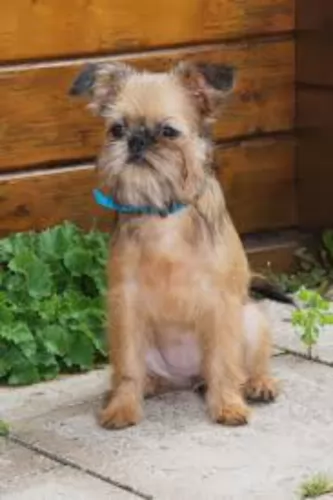 This hybrid is a loyal little dog. They are an affectionate lap dog that wants to be with his humans all the time. They have a very pleasant disposition and do well with children and other dogs. They might be shy to begin with but will warm up to affection. However, they are willful and self-important at times. This is tempered by their great sense of humor and empathy to its peoples’ moods. Left alone too long, they will tend to bark excessively.
This hybrid is a loyal little dog. They are an affectionate lap dog that wants to be with his humans all the time. They have a very pleasant disposition and do well with children and other dogs. They might be shy to begin with but will warm up to affection. However, they are willful and self-important at times. This is tempered by their great sense of humor and empathy to its peoples’ moods. Left alone too long, they will tend to bark excessively.
The Schnauzer Lab is a crossbreed so this essentially means that your dog can have behavioral traits from either of the parents.
They're social, friendly, loving dogs that can also make good watchdogs. The Schnauzerdor gets on well with children and can get on with other dogs too. With training and socialization he becomes much more amicable and obedient, making a super family companion.
You can be sure that he is going to make your family a great playmate, friend and pet.
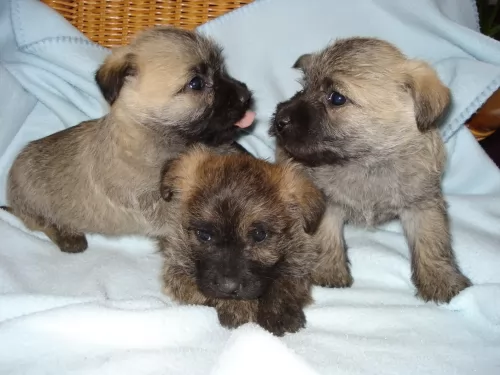 Usually the hybrid dog can have better health than either of the parents. This is true with the Brug as well, but there are also some issues they may inherit from the parents or face simply because of their size and complexion. These include:
Usually the hybrid dog can have better health than either of the parents. This is true with the Brug as well, but there are also some issues they may inherit from the parents or face simply because of their size and complexion. These include:
Your Schnauzerdog can live to be between 10 and 14 years of age if looked after well. There are some dog illnesses that many dogs succumb to, regardless of breed or age -
Hip dysplasia is when the hip joints don’t develop properly. You notice your dog is reluctant to play and even battles to get up again after lying down. Hip dysplasia can lead to painful arthritis and you will need to get him to the vet for pain relief and a treatment plan.
This dog loves his food, and because you love him so much, it will be tempting to pop treats into his mouth all the time. It is so easy to overfeed these dogs and obesity is a big problem and can contribute to joint problems with a dog as well as strain on the heart and other organs.
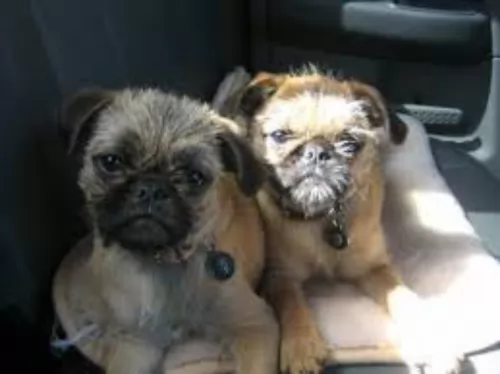 Don’t let this dog get overweight. Feed a high quality dry food intended for small or toy dogs. One fourth to one half of a cup per day in two separate meals is what is recommended.
Don’t let this dog get overweight. Feed a high quality dry food intended for small or toy dogs. One fourth to one half of a cup per day in two separate meals is what is recommended.
Patella Luxation or slipped knee caps – small dogs often have this issue. The patella is the knee cap and layman often called it a slipped knee cap, but it is also called slipped stifles. The femur, the tibia and the patella do not line up and this causes an abnormal gait or even lameness. Puppies are born with this, but it does not exhibit symptoms until years later. Arthritis is the most common result. Occasionally surgery is required.
Eye Issues – Cherry eye, a genetic disease, as well as irritation from air borne particles, allergies or scratches.
Skin Allergies – They can have skin allergies so watch for excessive licking or scratching.
Breathing Issues – Asthma and respiratory issues are common among small dogs with these types of faces.
Like their 2 breed parents, the Brug is a small but energetic hybrid. They need to play and run on a daily basis. Leash walks are good, but they need a yard or dog park as well. They are athletic little dogs and are good at tracking, obedience and agility. You cannot force them to do an activity but if its fun they will jump right in.
Check your Schnauzerdor’s ears and eyes for infection. Look inside his mouth and check for bad teeth. When you brush him twice a week, check him over for new lumps.Trim his claws.
Your Schnauzerdor is an active dog and he will require vigorous exercise every day. A daily walk won't be enough for this dog. He will want runs in the park off his leash as well as rope- and ball games.
Give your Schnauzerdor the best chance to enjoy good health by providing him with good food.
There are some good commercially manufactured dog foods out there and they can be a good, convenient choice, especially if you choose the high quality ones known for their wholesome, natural ingredients.
Give him some home-made food too which can be added into the dry kibble twice a week. Boil brown rice and chicken in a pot and add in sweet potatoes, carrots and spinach. Chop all this up and as a treat, add some of this into the dry kibble.
Your dog’s wagging tail will be all the thanks you need. Try to also include some raw meat occasionally. Never leave your pet without a constant source of fresh, cool water.